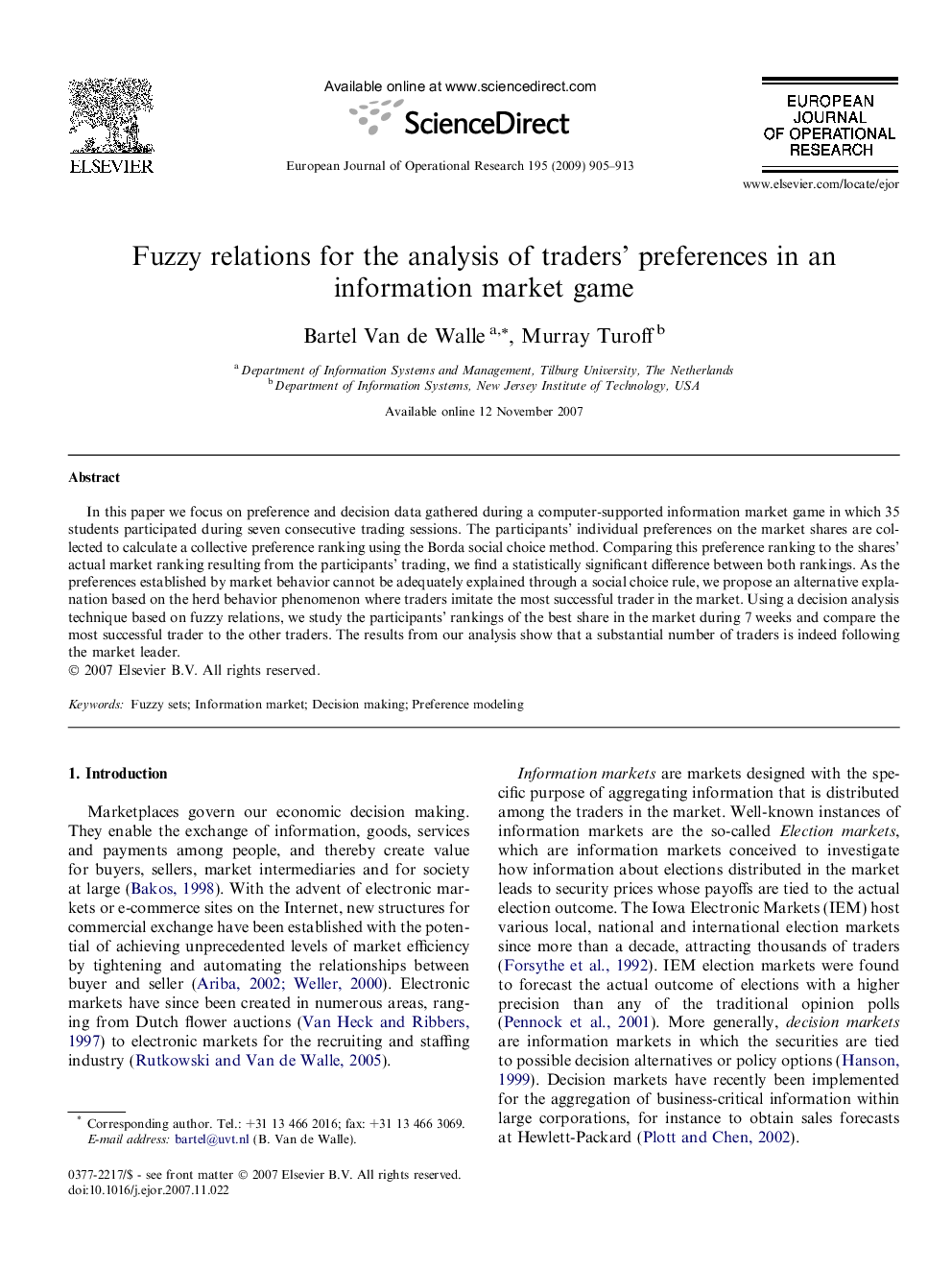| Article ID | Journal | Published Year | Pages | File Type |
|---|---|---|---|---|
| 478795 | European Journal of Operational Research | 2009 | 9 Pages |
In this paper we focus on preference and decision data gathered during a computer-supported information market game in which 35 students participated during seven consecutive trading sessions. The participants’ individual preferences on the market shares are collected to calculate a collective preference ranking using the Borda social choice method. Comparing this preference ranking to the shares’ actual market ranking resulting from the participants’ trading, we find a statistically significant difference between both rankings. As the preferences established by market behavior cannot be adequately explained through a social choice rule, we propose an alternative explanation based on the herd behavior phenomenon where traders imitate the most successful trader in the market. Using a decision analysis technique based on fuzzy relations, we study the participants’ rankings of the best share in the market during 7 weeks and compare the most successful trader to the other traders. The results from our analysis show that a substantial number of traders is indeed following the market leader.
